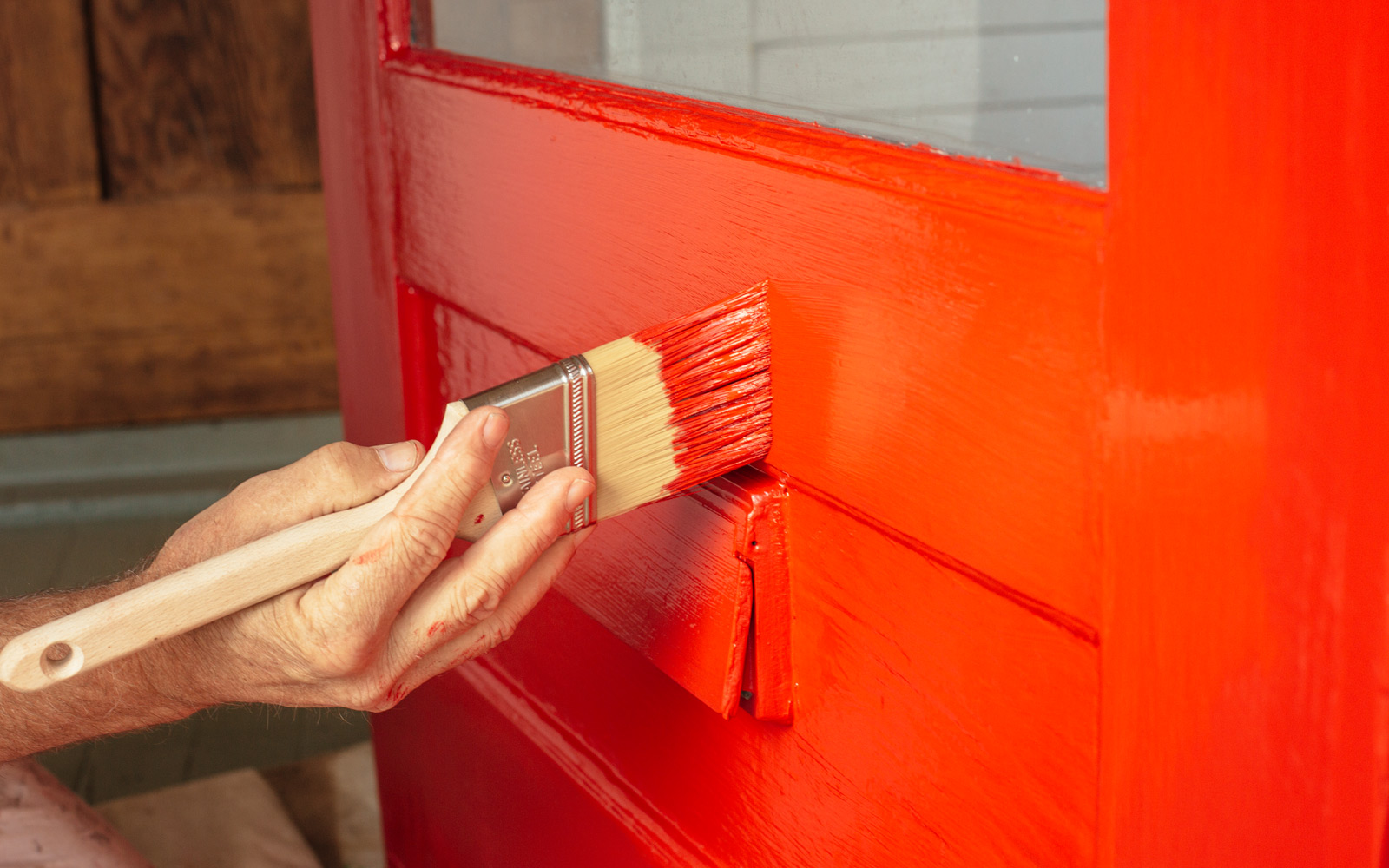
How To Choose A Paintbrush

"When embarking upon a project involving paint or primer, it’s important to find the right paintbrush. In fact, finding the right brush can make all the difference in your project. There are hundreds of paintbrushes on the market to choose from, so you might wonder: What paint brush should I use?"
The first question to ask yourself is whether your project is rough work, like applying primer, or it needs to look good, like trimming interior walls. Inexpensive bristle brushes, often called, “Chip Brushes,” may be fine for slapping on some primer or preservative, but they aren’t a good choice for projects on display.

The label on most brushes includes the job it’s designed for, but here are some basics for finding the right paintbrush for the right job:
Oil Based Coatings
If you’re using an oil based paint or stain, you’re going to have best results with a natural bristle brush versus synthetic bristle. Natural bristle brushes hold their shape in oil based coatings and are soft enough to spread the coating. Black bristle brushes are great for enamels, primers, and oil based paints, and white bristle brushes are great for oil based stains and polyurethanes.
Water Based Coatings
Synthetic bristle brushes made of nylon, polyester, or a blend of man-made fibers work great with water based paint and finishes. Nylon tends to create a stiffer brush and they wear well so a nylon brush is great for rough surfaces. Polyester brushes tend to hold and release a lot of paint (which means more time painting), and they provide a smoother finish. They are also easier to clean.

Choose a size to match your task
Narrower brushes are perfect for smaller surfaces like moulding, trimwork, or a quick touch-up. Mid-size brushes in the 2” to 3” wide range are very versatile and work well for cutting in. Your larger (4-6”) brushes are good for back-brushing, or painting a large surfaces such as a deck.
You get what you pay for
You've heard to old saying, "You get what you pay for." A throw away brush is fine for slapping on some primer, but you’ll want a good quality brush for painting something like trim work, doors, or furniture, which people see everyday. Spending extra for quality and matching the brush to the coating will minimize brush marks and give you better results.

For tips on cleaning your brushes and keeping them ready for the next project, email us at diy@dunnlumber.com.






